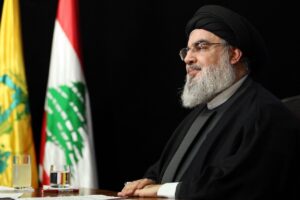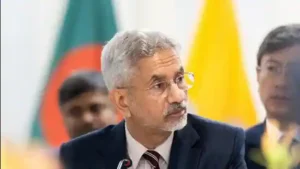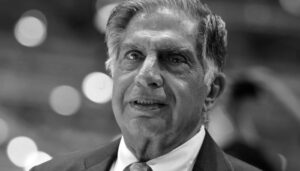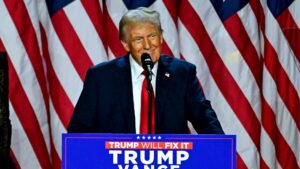Martyrdom of Hassan Nasrallah, Muslim Countries’ Strategy?

The Iranian Consul General in Karachi, Hassan Nourian, stated that as members of the Non-Aligned Movement, Pakistan, Iran, and Turkey should unite and raise their voices against Israel to stop Benjamin Netanyahu’s ongoing genocide in Palestine and Lebanon.
He made this statement during a meeting with Sindh Governor Kamran Khan Tessori, who visited the consulate to express condolences over the recent Israeli bombing of Lebanon, which resulted in the martyrdom of Hezbollah’s Secretary-General, Sayyed Hassan Nasrallah, his companions, and the deputy commander of Iran’s Quds Force, Abbas Nilforoushan.
In his remarks, the Governor of Sindh expressed his heartfelt condolences over the martyrdom of Sayyed Hassan Nasrallah. He noted that Nasrallah had dedicated his life to justice and resistance, and his actions and sacrifices would always be remembered with great respect.
Martyrdom of Hassan Nasrallah, What Strategy for Muslim Countries?
Kamran Khan Tessori wrote that for all those who seek justice, Sayyed Hassan Nasrallah’s leadership and sacrifice will remain a symbol of strength and resilience, and his legacy will continue to inspire future generations.
Just moments after confirming Hassan Nasrallah’s martyrdom, the Governor of Sindh wrote to Deputy Prime Minister and Foreign Minister Ishaq Dar, expressing his concerns about the situation. He pointed out that after killing over 40,000 Palestinians, Israel had now challenged Lebanon’s sovereignty, putting the entire region’s security at risk.
He reminded that Israel had previously targeted Hamas political leader Ismail Haniyeh in Tehran when he attended the funeral of Iranian President Ayatollah Ebrahim Raisi, who had died in a helicopter crash. The Governor described Israel’s actions as state terrorism, calling them a threat to the stability of the Middle East.
In his letter, the Governor urged that Israel’s terrorism be forcefully raised at the United Nations, and that both the UN Secretary-General and the Organization of Islamic Cooperation (OIC) be informed of Pakistan’s concerns. He expressed hope that Prime Minister Shehbaz Sharif would take all possible steps to support Lebanon and Palestine’s sovereignty and uphold international law.
While speaking to the media after offering condolences to the Iranian Consul General, the Governor discussed the challenges facing the region, stating that it is due to the advanced capabilities of Pakistan’s military and its status as a nuclear power that no enemy dares to look at Pakistan with hostility.
The Governor emphasized that Pakistan must formulate a strategy based on its resources, considering how it can influence other nations. He stressed the importance of thinking about future generations, noting that if Palestine, Lebanon, or confrontations against Iran are happening today, Pakistan could be next. He suggested responding to the situation with greater cooperation, trade, and stronger relations with Iran.
Reflecting on the ongoing attacks in Palestine, Syria, Lebanon, Yemen, and Iraq, the Governor pointed out that even the religion Netanyahu follows opposes violence. It is clear that Israel does not want to see Muslim countries prosper; whether by seizing land or eyeing oil resources, its motives are dangerous.
The Governor urged consideration of how Muslim countries can work together to stop Israel’s malicious intent. He reiterated the importance of his letter to the Deputy Prime Minister, believing that the Prime Minister shares his concerns.
In response to the letter, Iranian Consul General Hassan Nourian expressed his gratitude to the Governor and noted that Israel, which occupies Al-Aqsa Mosque, is an enemy of all Muslims, not just one sect. He highlighted that Ismail Haniyeh, a Hamas leader, belonged to the Sunni sect, while the recently martyred Hezbollah leader was Shia. Nourian stressed that now is the time for Muslim countries to unite against Israel, or else the entire region could be engulfed in fire.
Discussing Hezbollah’s Secretary-General, the Consul General mentioned that Sayyed Hassan Nasrallah was 63 years old at the time of his martyrdom. Notably, Ismail Haniyeh, a leader of Hamas and a symbol of resistance, was also 63, as were Quds Force Commander General Qassem Soleimani and Iranian President Ebrahim Raisi, who were martyred in a helicopter crash.
The Consul General emphasized that these leaders were part of a caravan struggling for the liberation of Al-Quds, holding high the flag of Islam. He noted that they were blessed with the same age, which, from a worldly perspective, was the age that Allah had granted to the Prophet Muhammad (PBUH) and his grandson Imam Hussain, who was martyred in Karbala.
The Consul General concluded by acknowledging that 2024 has been a challenging year for Iran. Quoting a verse from the Quran, he expressed his belief that after hardship comes relief, and he was confident that, just as Hezbollah defeated Israel in 2006, they will emerge victorious once again.








